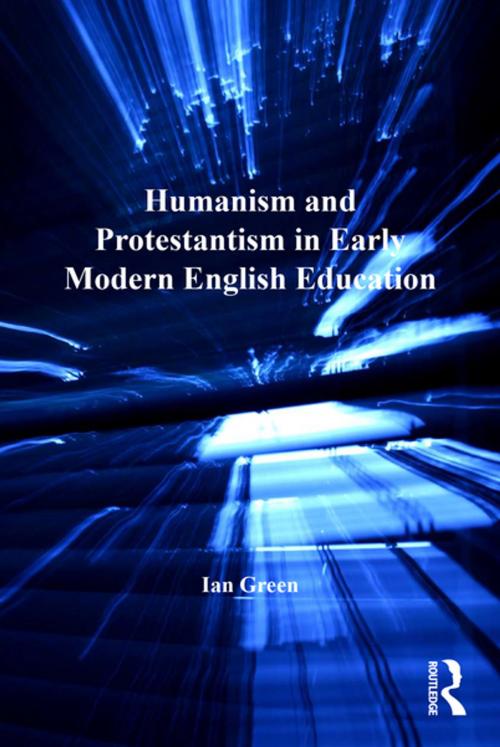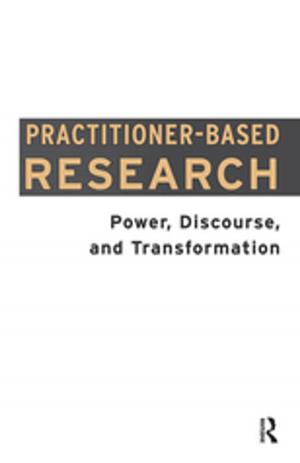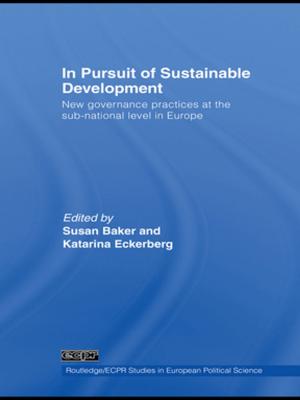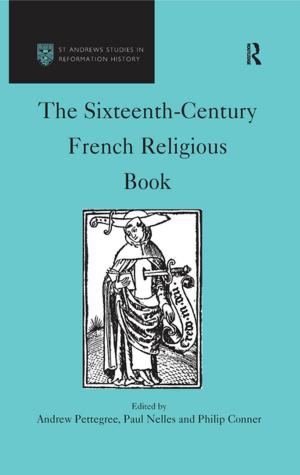| Author: | Ian Green | ISBN: | 9781317119616 |
| Publisher: | Taylor and Francis | Publication: | May 13, 2016 |
| Imprint: | Routledge | Language: | English |
| Author: | Ian Green |
| ISBN: | 9781317119616 |
| Publisher: | Taylor and Francis |
| Publication: | May 13, 2016 |
| Imprint: | Routledge |
| Language: | English |
This volume is the first attempt to assess the impact of both humanism and Protestantism on the education offered to a wide range of adolescents in the hundreds of grammar schools operating in England between the Reformation and the Enlightenment. By placing that education in the context of Lutheran, Calvinist and Jesuit education abroad, it offers an overview of the uses to which Latin and Greek were put in English schools, and identifies the strategies devised by clergy and laity in England for coping with the tensions between classical studies and Protestant doctrine. It also offers a reassessment of the role of the 'godly' in English education, and demonstrates the many ways in which a classical education came to be combined with close support for the English Crown and established church. One of the major sources used is the school textbooks which were incorporated into the 'English Stock' set up by leading members of the Stationers' Company of London and reproduced in hundreds of thousands of copies during the seventeenth and eighteenth centuries. Although the core of classical education remained essentially the same for two centuries, there was a growing gulf between the methods by which classics were taught in elite institutions such as Winchester and Westminster and in the many town and country grammar schools in which translations or bilingual versions of many classical texts were given to weaker students. The success of these new translations probably encouraged editors and publishers to offer those adults who had received little or no classical education new versions of works by Aesop, Cicero, Ovid, Virgil, Seneca and Caesar. This fascination with ancient Greece and Rome left its mark not only on the lifestyle and literary tastes of the educated elite, but also reinforced the strongly moralistic outlook of many of the English laity who equated virtue and good works with pleasing God and meriting salvation.
This volume is the first attempt to assess the impact of both humanism and Protestantism on the education offered to a wide range of adolescents in the hundreds of grammar schools operating in England between the Reformation and the Enlightenment. By placing that education in the context of Lutheran, Calvinist and Jesuit education abroad, it offers an overview of the uses to which Latin and Greek were put in English schools, and identifies the strategies devised by clergy and laity in England for coping with the tensions between classical studies and Protestant doctrine. It also offers a reassessment of the role of the 'godly' in English education, and demonstrates the many ways in which a classical education came to be combined with close support for the English Crown and established church. One of the major sources used is the school textbooks which were incorporated into the 'English Stock' set up by leading members of the Stationers' Company of London and reproduced in hundreds of thousands of copies during the seventeenth and eighteenth centuries. Although the core of classical education remained essentially the same for two centuries, there was a growing gulf between the methods by which classics were taught in elite institutions such as Winchester and Westminster and in the many town and country grammar schools in which translations or bilingual versions of many classical texts were given to weaker students. The success of these new translations probably encouraged editors and publishers to offer those adults who had received little or no classical education new versions of works by Aesop, Cicero, Ovid, Virgil, Seneca and Caesar. This fascination with ancient Greece and Rome left its mark not only on the lifestyle and literary tastes of the educated elite, but also reinforced the strongly moralistic outlook of many of the English laity who equated virtue and good works with pleasing God and meriting salvation.















